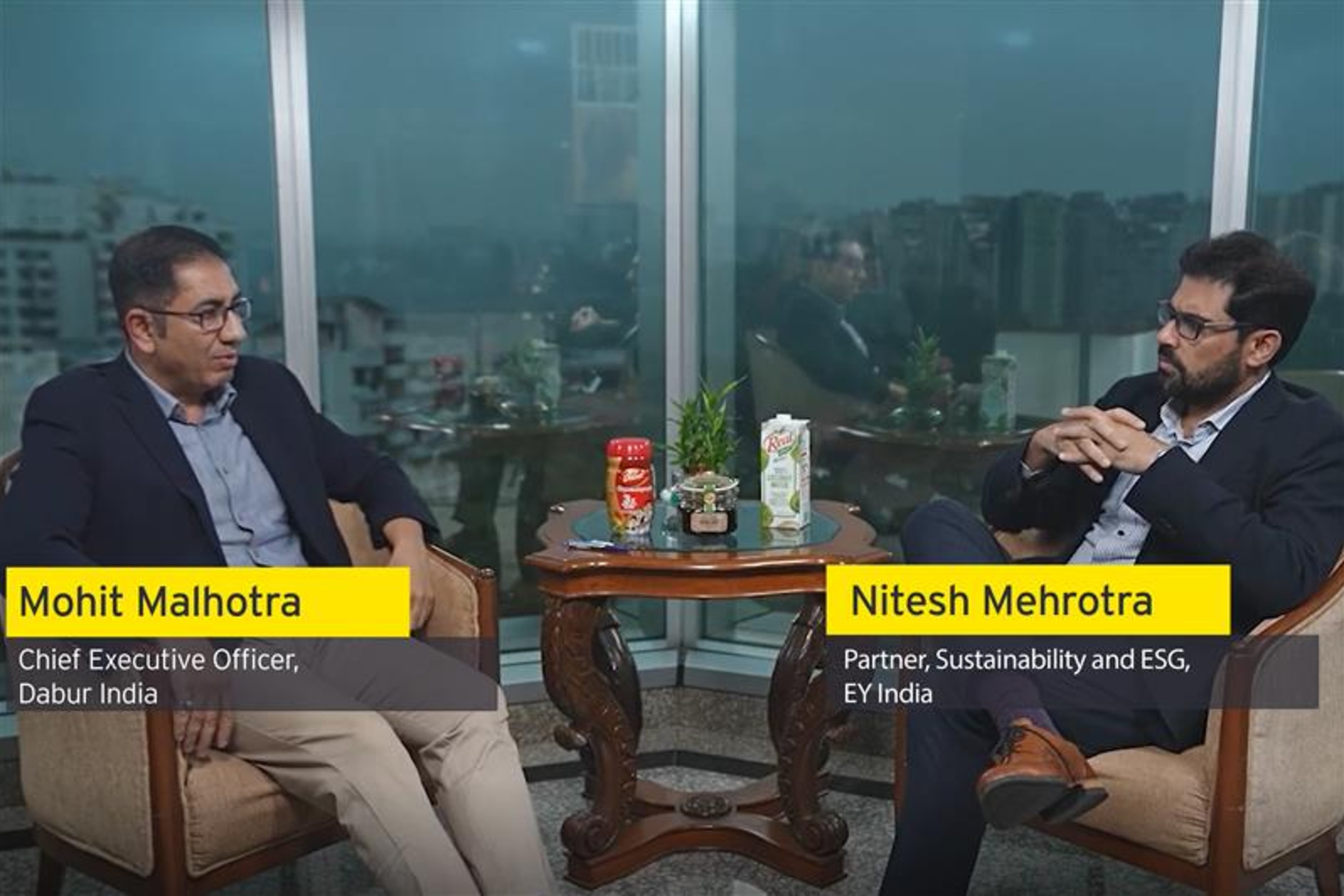EY refers to the global organization, and may refer to one or more, of the member firms of Ernst & Young Global Limited, each of which is a separate legal entity. Ernst & Young Global Limited, a UK company limited by guarantee, does not provide services to clients.
Managing GST compliance using technology
Our DigiGST® offering hosted on a secure cloud is your single-point solution for GST compliance. It is a gamechanger in tax technology. DigiGST® has met the GST compliance needs of over 3,000+ client entities reporting (US$200 billion+) tax liability annually.
Introduced in July 2017, Goods and Services Tax (GST) is the biggest indirect tax reform in India. GST laid the foundation for a more efficient tax system, has rationalized the tax structure and simplified the compliance procedures by replacing multiple central taxes and duties, as well as local state taxes.
A key component of GST is the automation of compliance procedures to reduce errors and increase efficiency. GST requires greater integration of tax domain knowledge and technology, as compliance has become paperless and data-intensive, with sector-specific nuances. The digitalization has also created a new paradigm in tax administration and reports and analytics.
EY's DigiGST® can provide a building block in your tax function to gain a competitive edge in this era of digital disruption. From evaluating current data elements to handholding GST compliance with seamless continuity, implementing DigiGST® is effortless and digitally transforms indirect tax compliance exercises.
- Partnership with SAP
- Partnership with Azure

DigiGST® platform is certified by SAP with a registered namespace to facilitate indirect tax compliances in India. It gets deployed as an add-on ERP module and cloud application.
DigiGST® is published on SAP Store – a digital marketplace where customers can discover, try and buy SAP partnered solutions, since 12 January 2023. The solution integrates seamlessly with SAP ERP / S4HANA as an add-on module, helping clients in simplifying the GST compliance procedures. It is a one-stop solution with forward and reverse integration capabilities, allowing users to perform GST-related compliances with in the SAP ERP system itself.
Overall, the availability of DigiGST on SAP Store provides businesses with an opportunity to manage their GST compliance requirements, enabling them to stay compliant with the latest GST regulations and focus on their core operations.
Visit EY DigiGST®on SAP store: EY DigiGST | SAP S/4HANA

DigiGST® is built on a fault tolerant and secure Microsoft Azure cloud platform that has the world’s best standards for cloud privacy, and combines EY’s tax domain expertise, technology capabilities and deep sector knowledge.
Your one-stop GST compliance solution
Integrated solution for GST needs
Whether it’s e-invoicing, e-way bills or GST returns, the solutions helps with most of your GST needs.
Forward, reverse integration provided
The solution provides forward and reverse integration with critical functions as part of API/SFTP response.
Manage compliance better
One-stop end-to-end compliance solution (including GSTR-9) helps better manage and store compliance data.
Built on secure platform
Business critical APIs hosted over primary and secondary regions, multiple security certifications.
DigiGST®: Client experiences
Finolex
GMR
Caterpillar
5 years of GST-what lies ahead?
Divyesh Lapsiwala
Tax Partner, EY India
Achal Chawla
Tax Partner, EY India
EY is one of the largest Application Service Provider – GST Suvidha Provider
Market leading credentials EY DigiGST advantage
All figures updated till February 2024 tax period.
More reasons to choose DigiGST®
Our Latest thinking
How ITC reforms can propel the managed workspace sector
GST on Managed Workspaces: Explore key issues, challenges, and proposed reforms to streamline tax regulations for the booming industry.
How to navigate GST on corporate guarantees
Dive into the taxation of corporate guarantees and unravel GST provisions in our ‘Indirect Tax Insights’ podcast's first episode. Listen now.
AI revolution: transforming the Tax landscape
Rahul Patni & Divyesh Lapsiwala discuss GenAI's future in tax, its role in enhancing productivity, and evolving tax professions. Tune in now!
Interim Budget 2024: tax navigation, BEPS 2.0 and energy transition
Navigate tax, BEPS 2 and energy transition with EY's analysis on Interim Budget 2024. Enhance your understanding. Listen now!
Interim Budget 2024: impact on the macroeconomics of Indian economy
Explore EY's analysis of the Interim Budget 2024's impact on India's economy. Dive deep into macroeconomics! Listen now!
Interim Budget 2024: key policy announcements and their impact
Explore EY's Budget Insights Podcast, Ep.4 on Interim Budget 2024, for expert understanding on policy impact. Read more for key insights.
EY highlights how Budget 2023 attempts to make the new concessional tax regime more attractive. Learn more about the new and old tax regimes.
19th Annual EY India Tax Workshop 2024
Register for India Tax Workshop 2024. Learn more about the tax function.
Incentives by States to bolster the growth of the tourism sector
Know about state incentives boosting India's tourism sector with EY. Decode complex strategies with ease. Start listening now!
Online gaming in India – the GST conundrum
EY outlines the implications under the GST laws on the emerging online gaming industry. Learn more about GST regime for Online gaming Industry.
How EY can help
-
EY GTA is an intelligent technology platform supporting comprehensive global trade transactions and is a one stop solution for Customs and Foreign Trade Policy compliance.
Read more -
Explore EY India Tax Platform – a cutting-edge digital tax platform delivering streamlined tax solutions, advanced technology, and seamless DST compliance.
Read more
Meet our EY DigiGST® Solution team
Direct to your inbox
Stay up to date with our Editor's picks newsletter.














